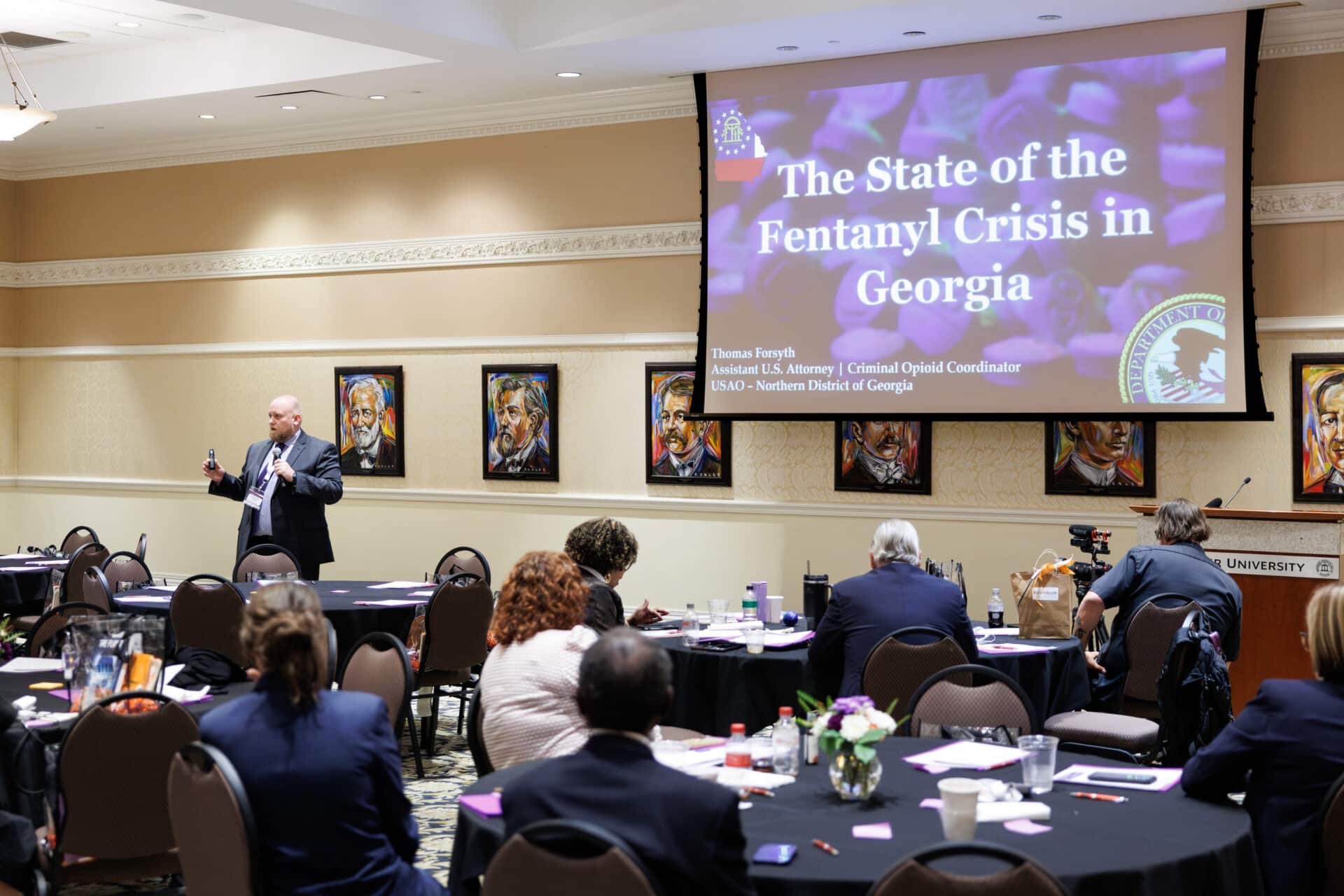
On Sept. 18, 2025, Mercer University School of Medicine (MUSM), its Georgia Rural Health Innovation Center (GRHIC) and the CWC Alliance partnered to host the Prescription for Prevention: Opioid Misuse in Rural Georgia Conference.
The full-day event brought together physicians, nurses, counselors, social workers and advocates to address the opioid crisis and challenges facing Georgia’s rural communities. Special presentations included CWC’s opioid crisis response, the impact of addiction on medicine, the Prescription Drug Monitoring Program and the state of the fentanyl crisis in Georgia.
A feature of the event was the Life Care Specialist (LCS) program. The LCS program is a hospital-based model that provides opioid safety education, pain management techniques and mental wellness skills. The program was launched at Grady Memorial Hospital by CWC. To address the rise in opioid-related deaths in rural communities, CWC partnered with MUSM and GRHIC to implement the program. It has since expanded to rural hospitals across the state, such as Mountain Lakes Medical Center, Stephens County Hospital and Coffee Regional Medical Center.
Participants also viewed a screening of the documentary “Fentanyl: Death Incorporated,” followed by a panel discussion that offered a range of perspectives on the fentanyl crisis and the need for prevention strategies that address families, youth and community resilience.
Kannon Haskins, MD, presented on how addiction impacts medicine, exploring both the physiological aspects of substance use disorders and the broader effects on health care providers and patients. This session emphasized that addiction is a complex brain disease requiring comprehensive prevention and recovery strategies.
Donovan Stephens, MPH, deputy director of the Opioids and Substance Misuse Response Program, focused on Georgia’s Prescription Drug Monitoring Program (PDMP) and how it can be used to improve prescribing practices and reduce misuse. He also discussed the program’s public safety plan and the benefits of harm reduction strategies.
Thomas Forsyth, JD, assistant U.S. attorney, presented on the state of the fentanyl crisis in Georgia, reinforcing the importance of collaborative approaches across medical, behavioral health and legal systems.
The Prescription for Prevention Conference closed with reflections on the state’s ongoing efforts to combat opioid misuse in rural Georgia, with an emphasis on building sustainable partnerships and investing in prevention, treatment and recovery infrastructure. Participants were encouraged to take what they learned back to their practices, organizations and communities.
Together, these collective efforts represent the next step in ensuring healthier, more resilient communities across Georgia. Mercer University School of Medicine, its Georgia Rural Health Innovation Center and the CWC Alliance plan to continue hosting this conference annually.
